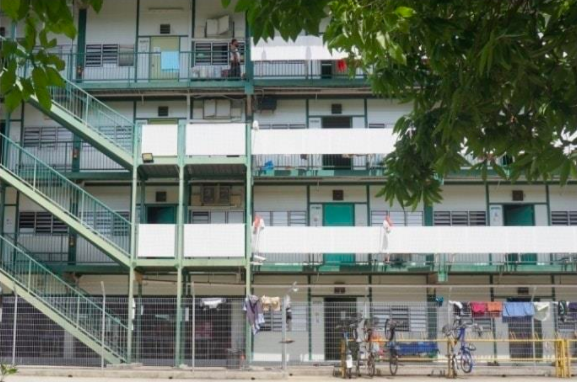Singapore—More restrictions on migrant workers living in dormitories will be eased starting from Oct 31, as those who test negative for Covid-19 will be allowed to visit recreation centres on their rest days, the Ministry of Manpower (MOM) announced on Wednesday (Oct 28).
This is raising hopes that it is a step toward ending what some have considered to be a “pandemic of inequality,” as the vast majority of Singapore’s 57,980 Covid-19 cases were found among migrant workers living in dormitories, resulting in far more stringent lockdown measures for them in comparison with the general population, who have been gradually allowed to enjoy fewer restrictions beginning from June 2, when the country entered Phase 1 of lifting circuit breaker measures.
A BBC report from last month reads, “It was a remarkably different experience to the lockdown the rest of the country was going through, with shopping allowed, daily exercise encouraged and every type of outlet offering delivery. These people were well and truly locked down, with only basic meals delivered to them.”
Alongside the possibility of infection outbreaks and a return to strict quarantine measures, workers rights activists have expressed concerns over the toll this has taken on their mental health, with recent reports of suicide attempts among migrant workers in the news.
Many of Singapore’s migrant workers in dorms have remained indoors, often in crowded rooms, as dorms cleared of infections would go into lockdown as new cases emerged, although recently the low level of infections over the past two months has allowed a further easing of restrictions, MOM said.
From the end of October, eligible workers may visit recreation centres (RCs) and have access to F&B outlets, minimarts, telecommunications shops, barbers and remittance services located in the RCs. And, while strict safety measures are in place, friends can get together at the communal facilities of the RCs.
However, MOM added that “workers will be staggered to visit the RCs at different time slots” to avoid possible overcrowding. “The number of Exit Passes issued for each time slot will be controlled through the application system,” the ministry added, saying that the rest days of the workers will be staggered.
Advocates for workers’ rights have said this is a positive development. “We are pleased and heartened to see the initiatives taken by MOM to ensure the workers return to normalcy in a phased manner and this is a welcome step,” said Dipa Swaminathan, the founder of NGO ItsRainingRaincoats.
The chairman of the Migrant Worker’s Centre, Mr Yeo Guat Kwang, said, “We hope that the Safe Rest Days initiative at the Recreation Centres will provide virus-cleared migrant brothers respite from the current movement control measures as we transition towards a time when these measures can be removed.”
As for the time when migrant workers will be able to move about freely, this is still uncertain. According to Mr Tung Yui Fai, Chief of the Assurance, Care and Engagement (ACE) Group under the MOM, “When there is greater assurance that COVID-19 transmission has been sustained at negligible levels, we will work with our stakeholders to review when dormitory residents could be allowed to visit other popular social and recreational spots beyond the RCs.” —/TISG
Read also: Even with 86% back at work, migrant workers’ pandemic woes are far from over
Migrant worker found with throat slit after alleged suicide attempt

